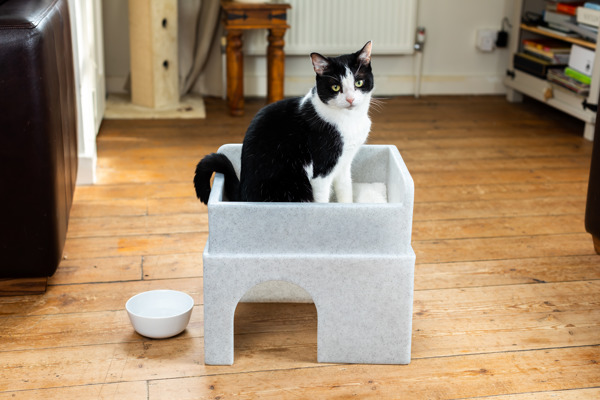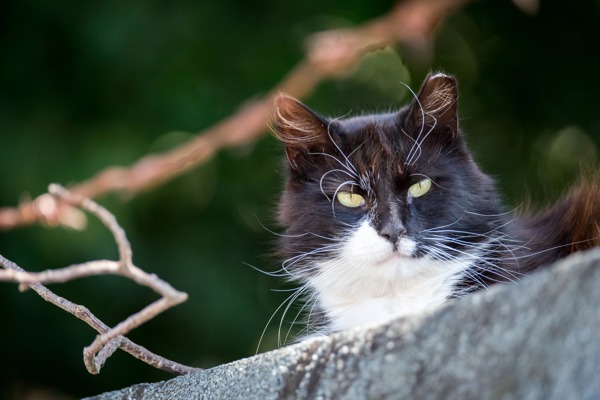Cats are known for their love of sleep, but do they sleep more during the colder winter months, and how else does their behaviour change in winter?
Cats spend a significant portion of their lives asleep. On average, they can sleep anywhere from 12 to 16 hours a day, with some cats even sleeping up to 20 hours a day!
This sleep is typically divided into short cat naps, making them light sleepers who can quickly wake up at any perceived threat or opportunity, such as another animal approaching or the sound of a tin of cat food being opened in the next room.
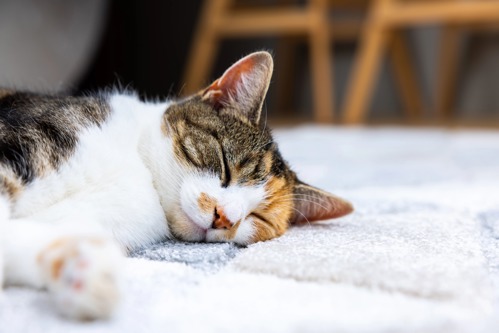
Cats sleep a lot all year round, but as a cat owner, you may have noticed that your feline friend seems to be less active during the winter months. Is this just a coincidence, or do cats really sleep more in winter? Let’s explore cats’ sleeping habits and the reasons behind them.
Why cats may sleep more in winter
- Temperature regulation. Cats are sensitive to temperature changes and while they don’t actually hibernate during the colder winter months, they may sleep more to conserve energy and maintain their body heat. Curling up in a cosy spot, like a warm bed or a sunbeam, helps them stay warm and comfortable.
- Reduced activity. Outdoor cats may spend less time outside during winter due to harsh weather conditions and being kept indoors when it gets darker earlier. As a result, they may have fewer opportunities for exercise and play, leading to increased sleep.
- Natural instinct. Cats' increased sleep during winter may be rooted in their natural instincts, based on changes in daylight and temperature. In the wild, some cat species, like lynxes and bobcats, are known to reduce their activity during the colder months when prey is scarcer. Domestic cats may exhibit a similar behaviour, even if their food source is consistent year-round. Find out more about how our pet cats are related to big cats.
- Lack of sunlight. Cats are known to seek out sunlight for warmth and relaxation. With shorter daylight hours in the winter, cats may spend more time sleeping in sunny spots to soak up the limited warmth available.
It's important to note that individual cats may vary in their response to winter, and not all cats will necessarily sleep more during this season.
As a responsible cat owner, it's essential to provide your feline friend with a warm and comfortable environment and plenty of opportunities for play and mental stimulation to help them stay active and engaged, regardless of the season.
Also, you don’t need to put your central heating on in winter just for your cat’s benefit. Their fur coat should be enough to keep them warm on cold days. Provide them with places to snooze that are dry and away from any drafts and they should be happy.
Find more advice about keeping your cat safe and happy in cold weather.
Other ways cats’ behaviour changes in winter
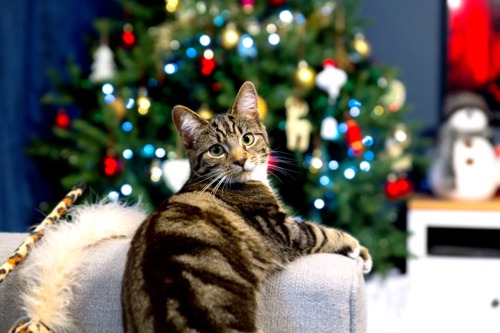
- They eat more. It’s normal for cats to eat more in winter and less in summer, due to the way the temperature affects their metabolism. Find out more about feeding your cat in winter.
- They shed more fur. In winter, cats develop a thicker coat to help keep them warm, which can make them appear fatter. As the season approaches they will shed their thinner summer coat to make way for their new fur. They’ll then shed this thick coat in spring in preparation for warmer weather. As a result, your cat may need extra help with grooming during autumn and spring to get rid of their excess fur while they are moulting. Find out more about grooming your cat.
- They go outside less. Cats aren’t usually keen on cold, wet and snowy weather, and so will often choose to stay indoors more in the winter where it’s warm and dry. At this time of year there is usually less prey to chase and catch outside too, so they have fewer reasons to explore outdoors.
- They get bored. Due to spending less time outdoors during winter, some cats may become bored or frustrated as there is less to keep them entertained indoors. Owners can sometimes misread signs of boredom as their cat feeling sad or hyperactive or being more lazy or clingy. To help keep your cat’s mind and body active inside the home, find out how to help a bored cat.
- They get more flees. The eggs of fleas will hatch when the conditions are just right, preferring a warm environment. This is why turning on the central heating in your home in winter can cause a sudden surge in fleas hatching from eggs that have been lying dormant in cooler temperatures. There may also be another surge in spring/summer when the outside conditions are ideal for flea survival. Find out more about fleas and how to treat them.
- They can get more stressed. Winter brings with it festive gatherings indoors and loud fireworks outside, which can be very stressful for cats. Find out how to help your cat cope with fireworks, and advice on keeping your cat happy at Christmas.
Do cats have kittens in winter?
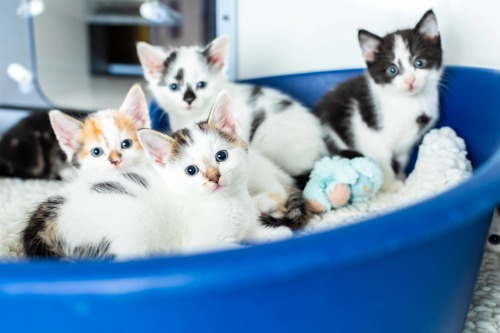
Cats can get pregnant at any time of year (so it’s important to get them neutered if you don’t want any unexpected litters!), but they are less likely go into heat, mate and give birth during the winter months. Most kittens are born in the summer, as a cat’s reproductive cycle is dependent on longer daylight hours. Find out more about kitten season.


